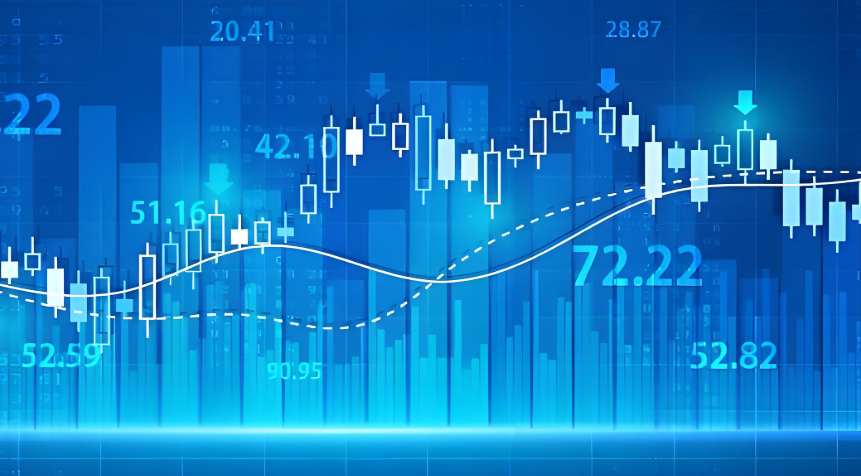Advertisements
Recent political turmoil in South Korea has triggered significant uncertainty in its financial markets, reminiscent of the tumultuous nature of politics and economics intertwined in this dynamic country. On a Tuesday evening, South Korean President Yoon Suk-yeol unexpectedly announced an "emergency martial law" during a televised speech, creating ripples across political and social landscapes. This hasty decision left lawmakers and citizens in shock, culminating in a rare emergency session of Parliament where all 190 members voted for the immediate rescission of the martial law declaration.
Just hours after this unprecedented declaration, President Yoon complied with the legislative body's demands, officially lifting the emergency order at around 4:27 AM local time on Wednesday, approximately six hours after its announcement. However, instead of restoring calm, this sequence of events seemed to exacerbate volatility in the political arena, as various factions—both ruling and opposition parties, along with civic groups—directed their ire towards Yoon, demanding his resignation and a retreat from the political party he leads.
Financial markets reacted swiftly to this instability. The South Korean won fell to its lowest value against the US dollar in two years, highlighting investors' discomfort with the evolving political climate. The stock market, particularly the benchmark KOSPI index, reflected this unease, sliding nearly two percent as investors sought to reassess their positions amidst growing uncertainty.
The implications of the martial law announcement extend beyond immediate political reactions; they raise alarms regarding South Korea's economic health and the upcoming challenges that may arise from escalating geopolitical tensions. Investors express concerns that this event might undermine confidence in Korean sovereign debt ratings, particularly if prolonged political deadlock ensues, leading to further fluctuations in the won's value.

Market analysts are acutely aware of the perhaps dire consequences that could follow such political developments. Luis Estrada, a strategist at RBC Capital Markets, articulated that the confluence of low liquidity persisting until the year's end, coupled with looming tariff policies affecting South Korea, casts a long shadow over the prospects for quick recovery in market confidence.
Investors from varying sectors have begun to voice their apprehension further. For instance, Sat Duhra, a portfolio manager at Janus Henderson in Singapore, described the unfolding situation as a "political gamble with no reward." While the historically low prices in the South Korean market might typically lure investors, the present uncertainty dissuades any inclination toward increasing exposure, particularly in light of the perceived "Korea discount"—a phenomenon where foreign investors are particularly wary of investing in South Korea due to its geopolitical and economic uncertainties.
Daniel Tan, another portfolio manager from Grasshopper Asset Management, echoed this sentiment, suggesting that the martial law episode could heighten the "Korea discount," with risk premiums on Korean assets seeing an upward shift. He added that while government assurances of "unlimited liquidity" might stave off a prolonged sell-off in the short term, the long-term implications of heightened political risk cannot be ignored.
In research notes, Robert Carnell, head of Asia-Pacific research at ING, expressed skepticism regarding the South Korean won's performance amidst existing domestic demand weaknesses. He highlighted that the Bank of Korea might have to adopt more accommodating policies, which was not initially the stance they held. Such an atmosphere of uncertainty regarding monetary policy tends to exacerbate market volatility, especially if direct interventions by the Bank of Korea materialize.
As the dust begins to settle, Frances Cheung from OCBC in Singapore noted that the initial spike in the USD/KRW exchange rate appeared to be a "knee-jerk reaction" by the markets, scrutinizing the depth of the response given the swift lifting of the martial law. This reaction suggests that while immediate impacts might be visible, the wider implications could surround the government’s stance on maintaining currency stability and the potential for foreign exchange interventions.
Linda Lam of UBS acknowledged that while the martial law incident seems more politically driven rather than exacerbating existing conflict on the Korean Peninsula, the resonance of instability is not to be overlooked. For the equity market, a fundamental stability in the currency could mitigate the longer-lasting impacts of domestic turmoil. Nonetheless, emerging market stocks—including those from Korea—are viewed with caution, particularly with upcoming policy changes looming on the horizon with the government’s new stance on tariffs and exchange rates.
David Chao from Invesco noted that while the situation continues evolving and markets may remain jittery in the immediate time frame, he maintains that the specific developments are unlikely to yield lasting impacts on Korea's economic structure or market conditions. The active policy responses from both the government and the central bank should, in theory, cushion any adverse effects, although persistent uncertainty may limit upward momentum in market recovery.
Finally, Olivier d’Assier from SimCorp offered a compelling conclusion, stating that the political vulnerabilities faced by President Yoon suggest an overall precariousness in his governance. He indicated that the declaration of martial law was more an act of desperation than a signal of systemic failure within the country’s financial framework. Thus, it positions South Korea amidst a tempest of challenges, and while swift responses can quell immediate volatility, the underlying tensions may linger, reshaping investor sentiment and economic forecast as the nation navigates through these turbulent waters.
Leave a Comment